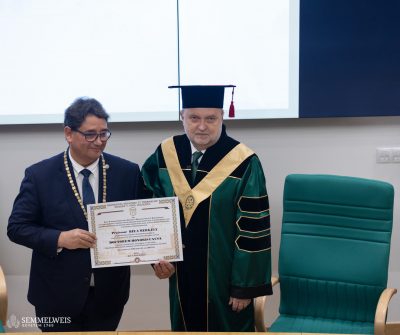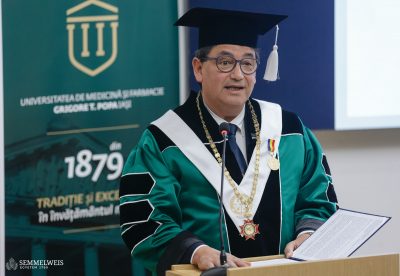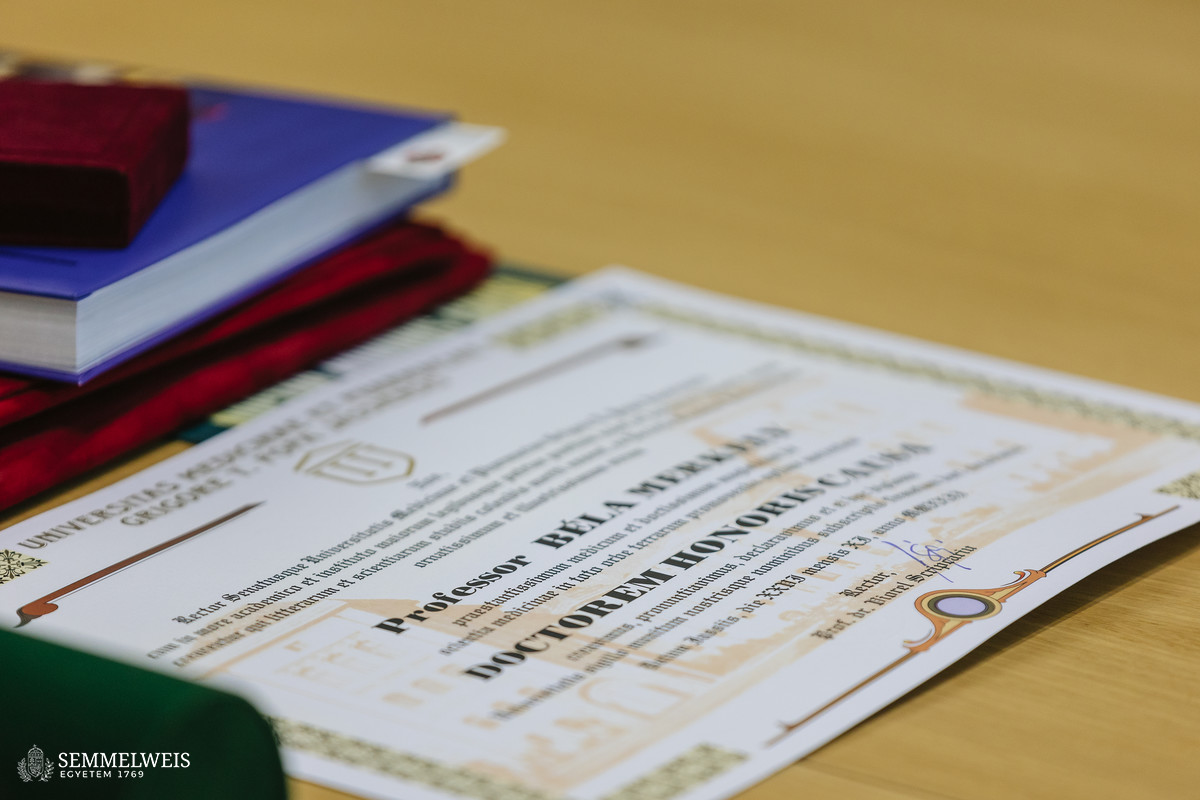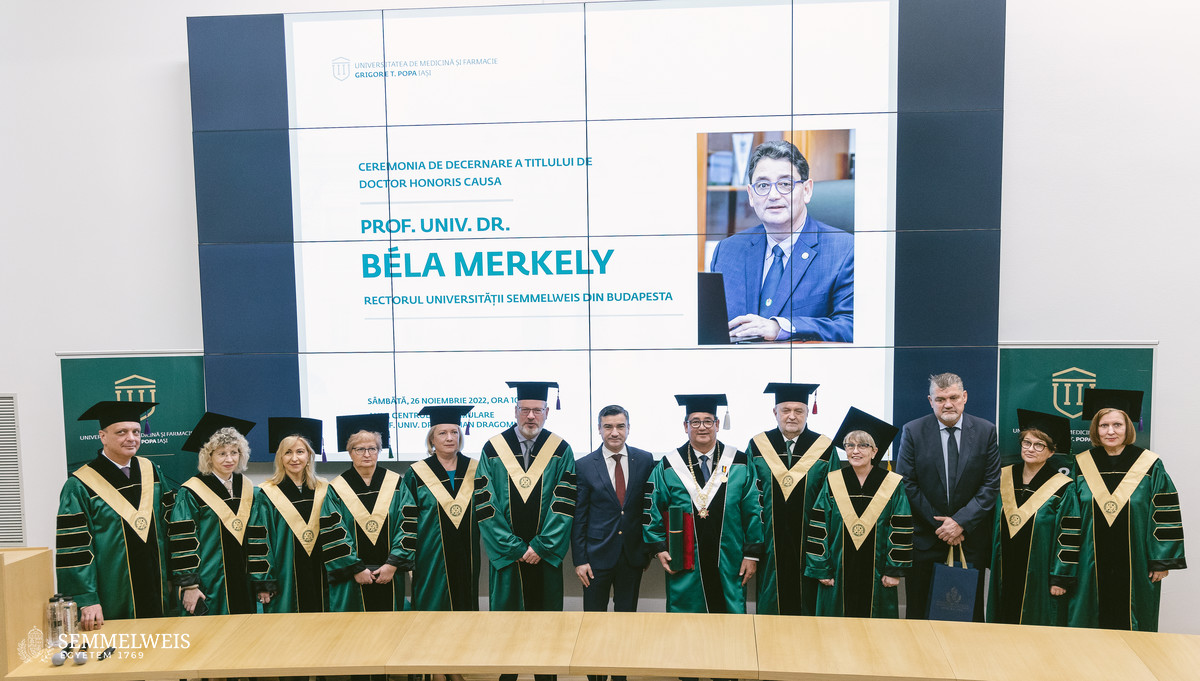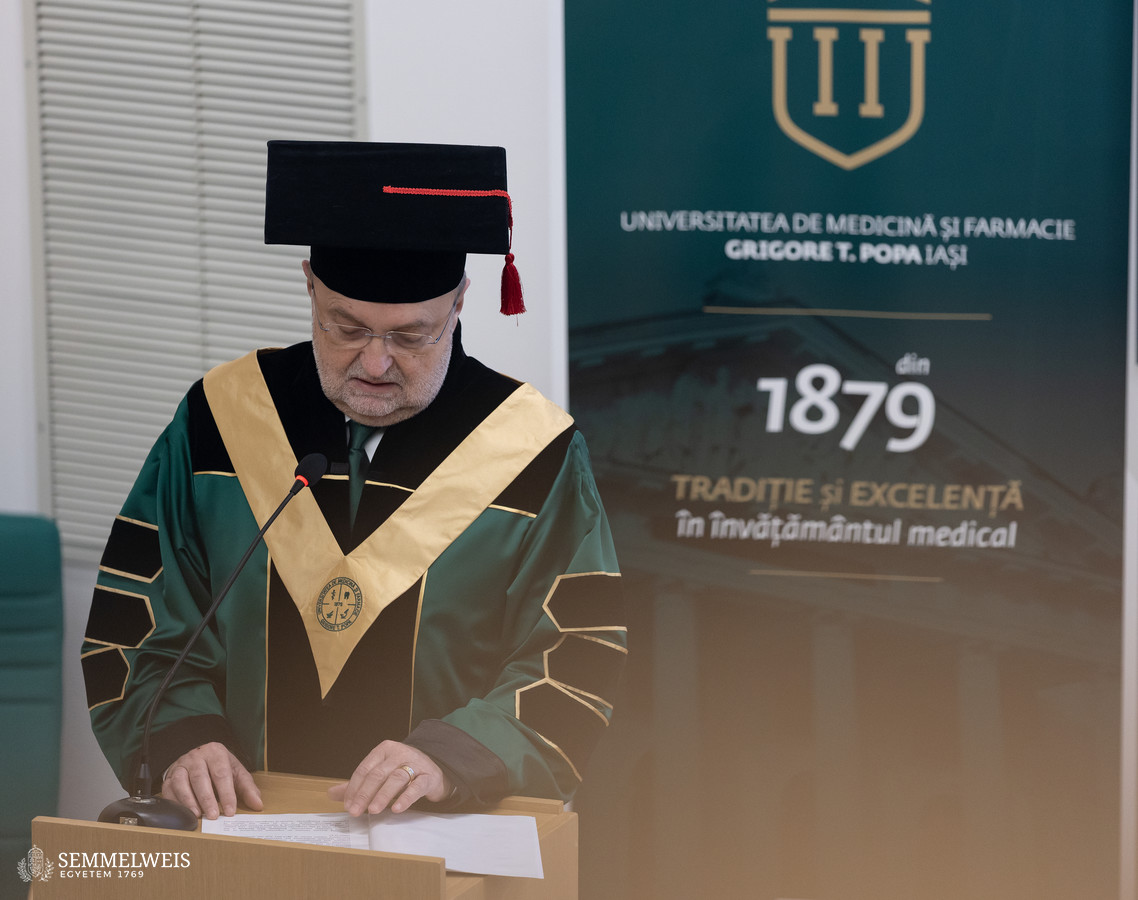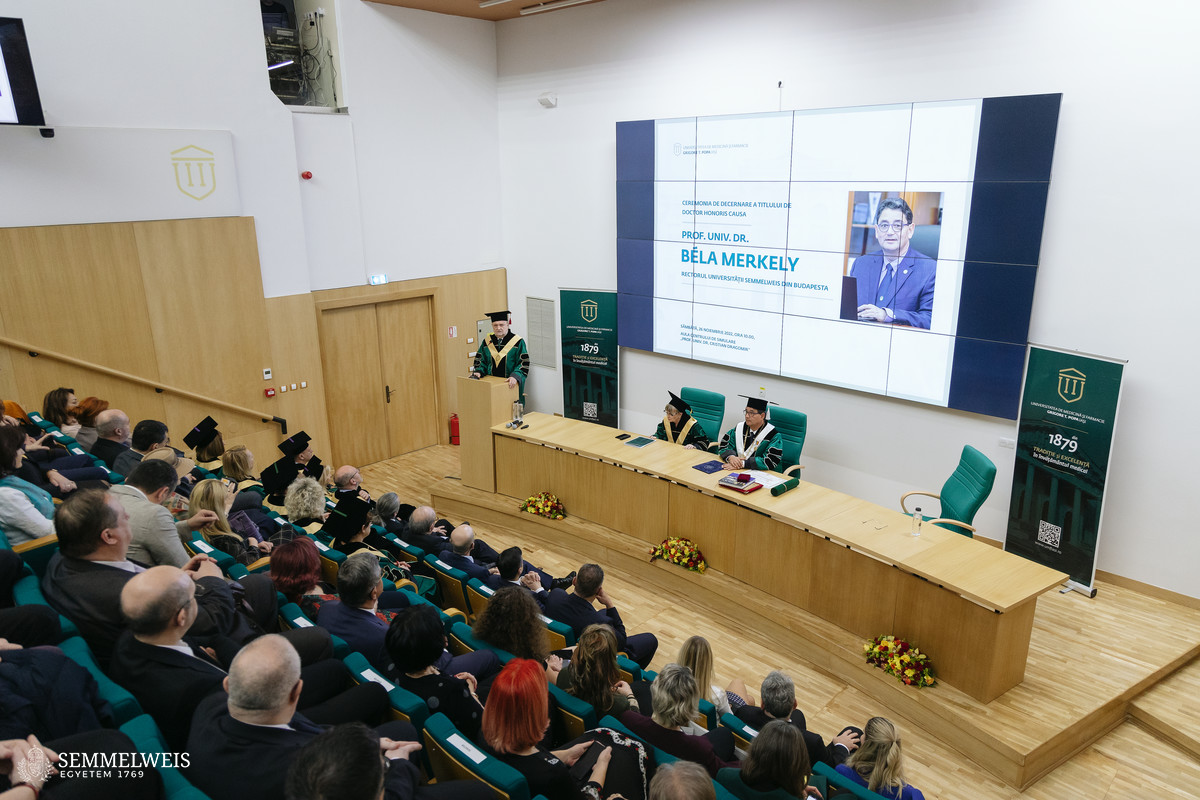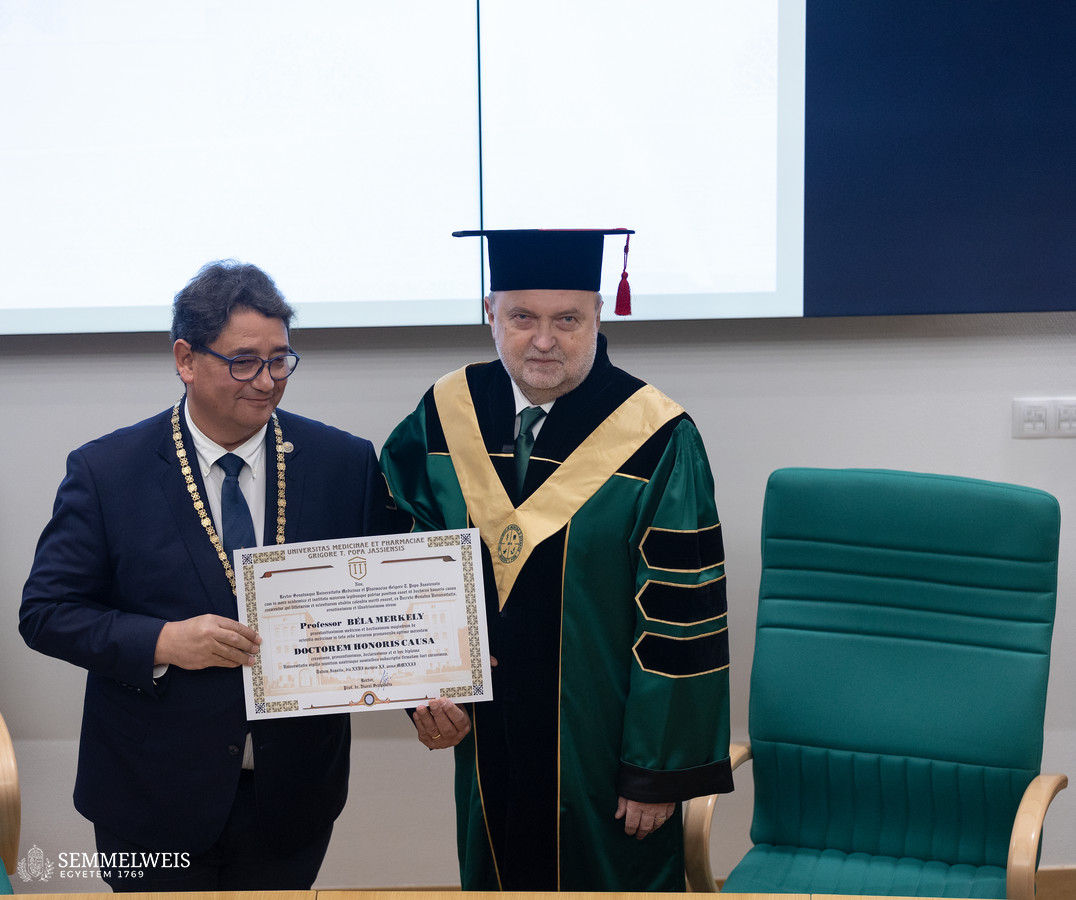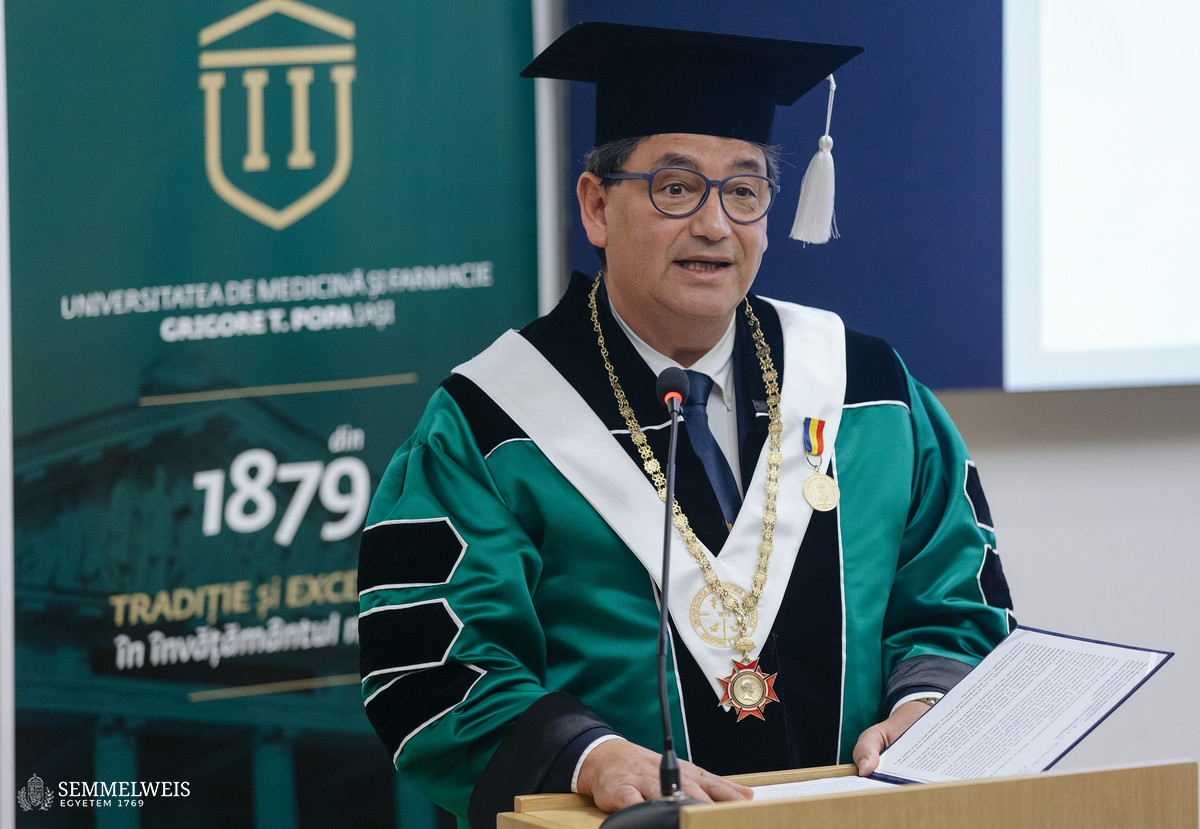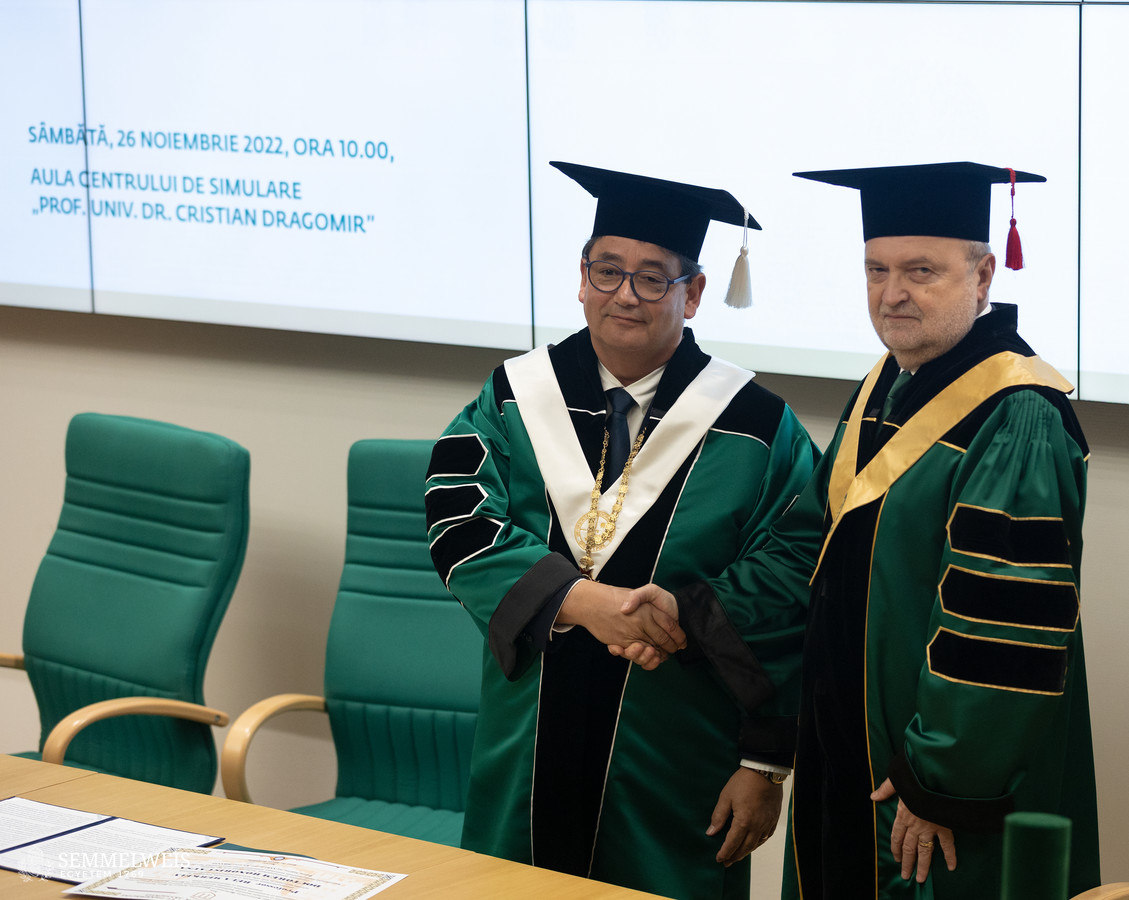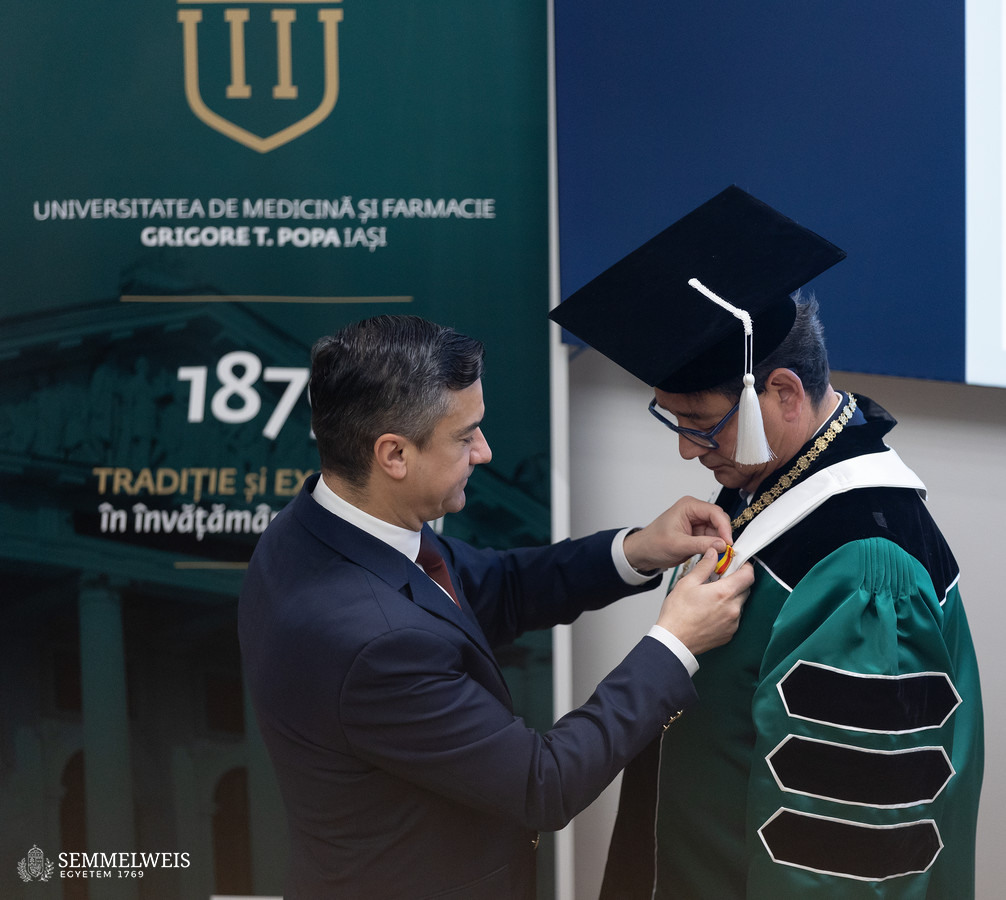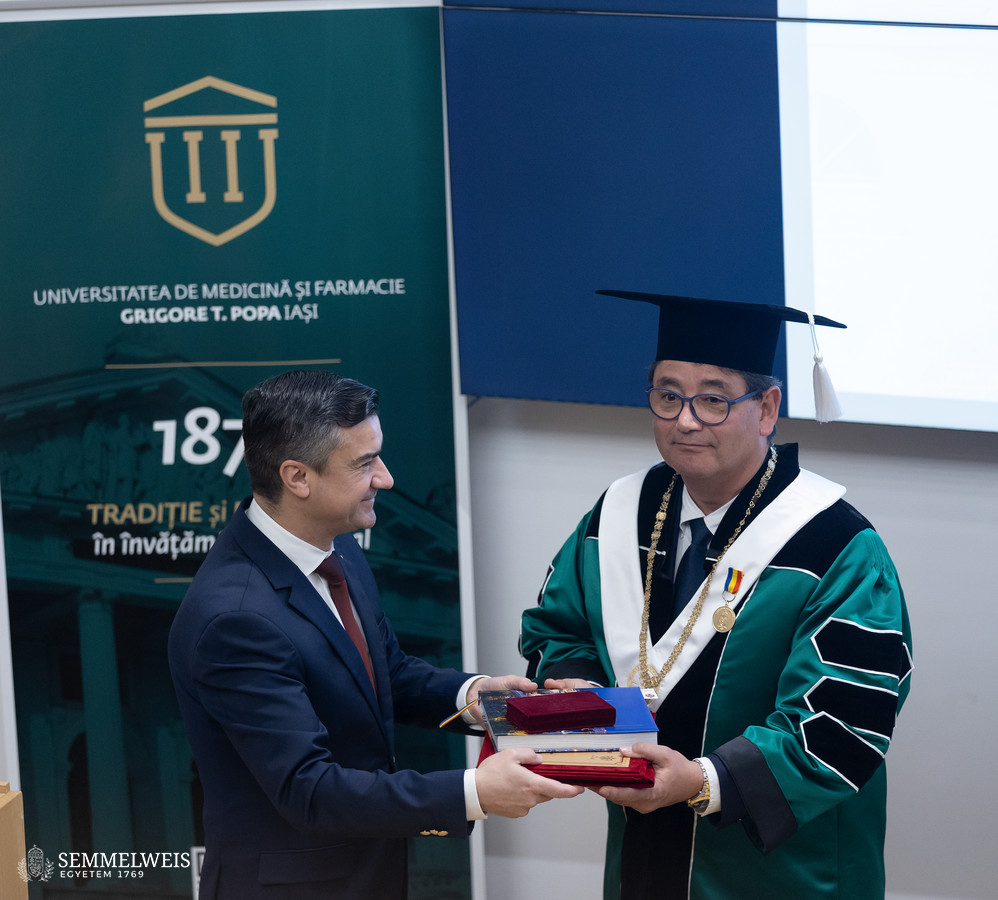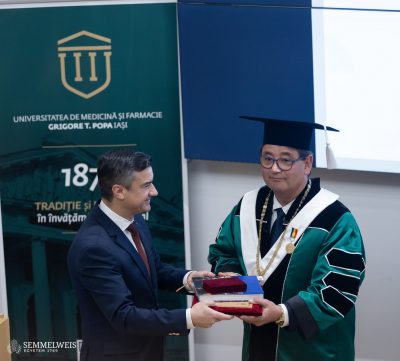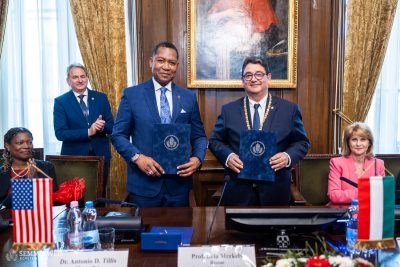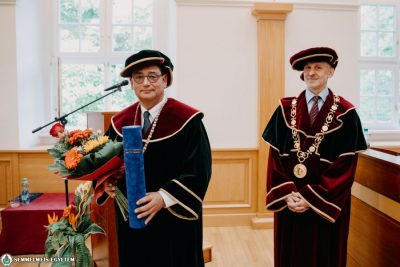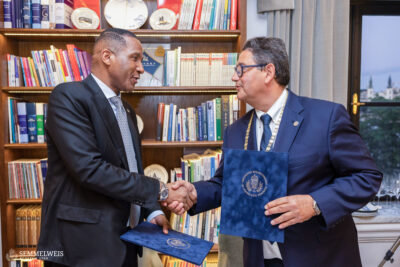“It is an honour to welcome Prof. Béla Merkely, a complex personality with extraordinary achievements as a clinician, researcher and professor, into the academic family of UMF Iași. He is the rector of the oldest university of medical sciences in Hungary – Semmelweis University, which is for us a model of curricular reform, a university that emphasizes practice-oriented medical training, continuous adaptation to the most complex changes and challenges in health and higher education and the expansion of international relations, student and course numbers,” said Prof. Viorel Scripcariu, Rector of UMF Iași.
I am confident that our cooperation with Semmelweis University, which started three years ago and has already been concretized this year, will continue, involving other areas and identifying further common goals, because Semmelweis is one of the strongest universities in the world and one of the largest in Central and Eastern Europe. With over 250 years of history and extraordinary people,”
he added. At the award ceremony held in the Prof. Univ. dr. Cristian Dragomir Simulation Centre Hall on 26th November, he pointed out that Dr. Béla Merkely is a prominent figure in the international medical world in the field of interventional cardiology. A leading researcher and role model for generations of students, he has also distinguished himself by the modern vision with which he has shaped Semmelweiss University’s development policies, combining the University’s 250-year tradition with the strategy of achieving global reform in the fields of education, research and health.
In his speech, Dr. Béla Merkely emphasized that he has always attached great importance to partnership agreements and joint work with foreign universities. “Particularly significant are the links that Semmelweis has with medical and health science institutions such as the Grigore T. Popa University of Medicine and Pharmacy in Iași. We are working not only in the same field – our goals are also similar, we are not only close to each other on the map: we share common goals, common problems and common challenges, which need to be solved by thinking together and finding common solutions,” he said, adding that “it is therefore gratifying that work has already begun. According to the Web of Science Core Collection database we have 25 joint publications.”
With this recognition, we are opening a new door to contribute to a common solution to regional and global problems through a new cooperation, a new partnership. Not only have we identified areas of common interest, but we have also achieved concrete results: recently, we have started collaborating in the field of translational medicine at PhD level,”
he emphasized. He also pointed out that two students from Grigore T. Popa University are doing their doctoral studies at Semmelweis University in dentistry and gastroenterology, within the framework of translational medicine clinical research program of the Center for Translational Medicine. “This is a special kind of collaboration, as students receive two degrees upon successful completion of their studies: one from Semmelweis and one from Grigore T. Popa University,” he said.
“I will do everything for further strengthening our partnership and supporting our institutions’ efforts to become among the scientific elite of Europe and the world”, Dr. Merkely promised while closing his speech.
Mihai Chirica, Mayor of Iași awarded the title of Honorary Citizen to Dr. Béla Merkely. He reminded that by awarding the DHC title, the university of Iași can also nominate for the title of honorary citizen of the city.
“This nomination is entirely in favour of the Grigore T. Popa Iasi University of Medicine and Pharmacy, but I am absolutely sure that we, i.e. the City Council of Iași, would have done the same, with the same understanding and conviction that gives the strong recognition of the quality represented by the personality of the nominee,” he said, and wished the Rector of Semmelweis University good health and success in the future during his academic and scientific activities.
Rita Kónya, Gábor Kiss
